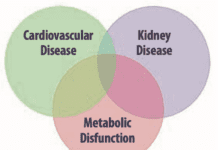A healthy handful of nuts may help protect you against heart disease by improving cholesterol levels, according to a new study. Lead researcher Joan Sabat, MD, DrPH, of Loma Linda University said the findings, which pooled results from 25 controlled trials in seven countries, provided the best evidence yet that eating nuts reduces LDL cholesterol and improves levels of fats in the blood.In 2003, the US Food and Drug Administration (FDA) approved a qualified health claim that evidence suggests eating 1.5 ounces of nuts daily as part of a diet low in saturated fat and cholesterol reduces heart-disease risk. Although the term nuts covers a wide variety of seeds, fruits and even legumes, the heart-health benefits dont seem restricted by botany: The FDA allows the health claim on almonds, hazelnuts, peanuts, pecans, some pine nuts, pistachios and walnuts; a further 2004 claim was okayed specifically for walnuts. Most of the studies in the new pooled analysis focused on almonds or walnuts.Dietary interventions to lower blood cholesterol concentrations and to modify blood lipoprotein levels are the cornerstone of prevention and treatment plans for coronary heart disease, Dr. Sabat and colleagues noted in Archives of Internal Medicine. Recently, consumption of nuts has been the focus of intense research because of their potential to reduce coronary heart disease risk and to lower blood lipid [fat and cholesterol] levels based on their unique nutritional attributes. Nuts are rich in plant proteins, unsaturated fatty acids, dietary fiber, minerals, vitamins and other compounds, such as antioxidants and phytosterols.The combined studies totaled 583 men and women with high or normal cholesterol levels, none of them taking cholesterol-lowering medications such as statins. All the trials compared cholesterol levels between groups consuming nuts and control groups, over periods ranging from three to eight weeks. Daily nut consumption in the test groups averaged 67 grams by weight-nearly 2.4 ounces, the equivalent of about two-thirds of a cup of walnut halves.Compared to the control groups, participants adding nuts to their diets saw an average 5.1% decrease in total cholesterol, 7.4% decrease in bad LDL cholesterol and 8.3% improvement in ratio of LDL to good HDL. Those with high triglyceride levels saw a 10.2% decline. Different types of nuts had similar effects, but the benefits were greatest among people with higher initial LDL levels and lower body mass index and people consuming more total and saturated fat.The study was partly funded by a nut industry trade group, but it did not play any role in the research.
| Your Heart Loves Pistachios Adding to a growing body of evidence of nuts potential heart-health benefits, Penn State researchers report that pistachios not only lower bad LDL cholesterol but also pack a potent antioxidant punch. Pistachios contain higher amounts of antioxidants, including beta-carotene, gamma-tocopherol and lutein, than most other nuts, which may help pistachios combat inflammation in the body. Researchers tested 28 volunteers, ages 35-61, with mildly high LDL levels on a low-fat control diet and diets with one and two daily servings of pistachios (averaging 1.5 ounces per serving, or 10%-20% of total daily calories). After four weeks on each test diet and two weeks on a baseline Western diet, participants had lower LDL levels when eating pistachios than when on the low-fat diet; LDL levels on two daily servings of nuts were also lower compared to the baseline measurements. Blood levels of lutein, beta-carotene, alpha-carotene and gamma-tocopherol were also boosted by eating pistachios. Researchers concluded, Beneficial effects on multiple cardiovascular-disease risk factors would be expected to reduce cardiovasculardisease risk beyond that achieved by decreases in LDL-cholesterol alone through lowering cholesterol and the benefits of the antioxidants in the nuts.TO LEARN MORE: Journal of Nutrition, June 2010; abstract at jn.nutrition.org/cgi/content/ abstract/140/6/1093?etoc |
The results support the inclusion of nuts in therapeutic dietary interventions for improving blood cholesterol levels, Dr. Sabat and colleagues concluded: Nuts are a whole food that have been consumed by humans throughout history. Increasing the consumption of nuts as part of an otherwise prudent diet can be expected to favorably affect blood lipid levels (at least in the short term) and have the potential to lower coronary heart disease risk.Because nuts are high in calories, the researchers recommended a maximum consumption of three ounces a day.TO LEARN MORE: Archives of Internal Medicine, May 10, 2010; abstract at archinte.ama-assn.org/cgi/content/ abstract/170/9/821























